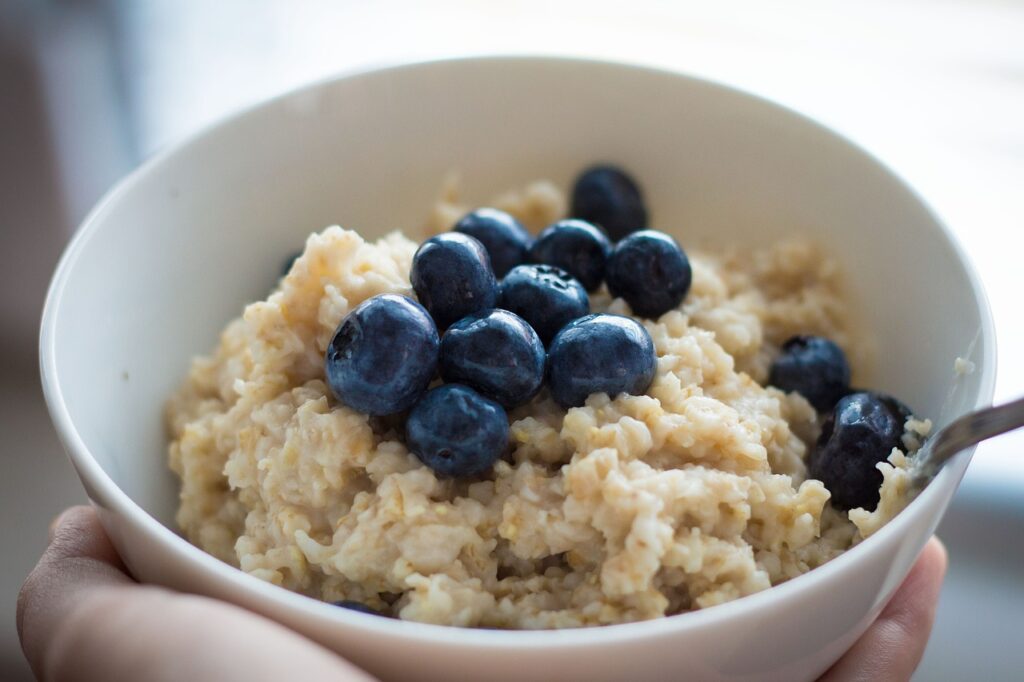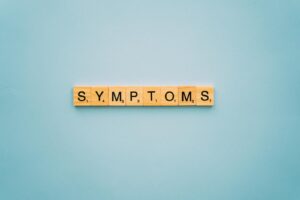Looks like Covid-19 and/or the vaccine triggered what appears to be lupus.
How to Prevent Lupus & Other Autoimmune Diseases [January 2025]
This blog post will give advice on how to prevent lupus and other autoimmune diseases. I will first describe the results of a 2021 Harvard research study called the VITAL Study that showed that vitamin D and omega-3 fatty acid supplements lowered the risk of developing autoimmune disease. Then, I will provide a list of “do’s and don’ts” that can potentially lower the risk of developing lupus. These would be especially helpful for the children and grandchildren of people who have lupus and other autoimmune diseases.
JULY 2024 Update:
February 2023 Update: A new study from Harvard doctors from Hahn J et al shows that women who abided by 5 lifestyle changes (maintain normal weight, exercise regularly, not smoking, drink alcohol in small to moderate amounts, and who eat a healthy diet) reduced their risk of developing RA by 13% for each lifestyle that they practiced. That is huge!
The followup results by Dr. Costenbader and her team, after 2 years of following the research subjects, showed that those who consumed 1,000 mg of high quality omega-3 fatty acid supplements daily had a reduced risk for developing autoimmune disease.
In July 2024, a multicenter study showed that lupus patients with high disease activity who consume 4 grams a day of concentrated krill oil had less disease activity after 16 months and lupus patients, regardless of disease activity, had higher levels of omega-3 fatty acids in their system, which may reduce the risk for heart attacks and strokes.
_______________________________________
Reducing the Risk for Autoimmune Diseases and Possibly Prevent Lupus
Autoimmune diseases, such as lupus, appear to be genetic in origin. However, most people born with these genes do not get these diseases. Environmental triggers seem to be necessary much of the time for an autoimmune disease to occur. Some of the best evidence for lupus triggers include Epstein Barr virus infection (mononucleosis), ultraviolet light exposure (especially too much sun), and cigarettes. Figuring out how to prevent lupus and other autoimmune diseases by avoiding these triggers could be very important.
Because of this, I have a list of what I recommend that parents should try to teach their children to lower the chances of developing lupus if a parent or other family members have lupus. I have this list in the 1st edition of “The Lupus Encyclopedia.” This list was theoretical and not proven at the time I wrote it. I was pleasantly surprised to hear Dr. Judith James recommend a similar list during her talk in 2019 when she received the Evelyn V. Hess Award from the Lupus Foundation of America.
Even better, we now have a well-done study (prospective, randomized controlled trial) from Harvard that showed people taking vitamin D or omega-3 fatty acid supplementation had a lower risk for developing autoimmune diseases.

Harvard study shows that vitamin D and omega-3 supplements reduce the risk of autoimmune disease
How the study was done
- Name of the study = the VITAL (VITamin D and OmegA-3 TriaL) study
- Close to 26,000 study participants (men and women, middle-aged and older)
- 2011 to 2017
- Subjects took either vitamin D, omega-3 fatty acids, or placebo (“sugar pill”)
- Vitamin D dose = Vit D3 2000 IU daily
- Omega-3 fatty acid (brand not noted) = 1000 mg daily
- They noted how many people developed an autoimmune disease
Results of the VITAL study
- Vitamin D reduced the risk for autoimmune disease by 22%
- In those with a family history of autoimmune diseases, vitamin D reduced the risk by 57%
- In those with a family history of autoimmune diseases, combination vitamin D and omega-3 supplements reduced the risk by 33%
- Omega-3 fatty acids reduced the risk for autoimmune disease by 18%
- Vitamin D was especially helpful in subjects with a low BMI (body mass index)
- Omega-3 fatty acids were especially helpful in subjects with a family history of autoimmune diseases
Interesting observations of the VITAL study
- Theoretically, it makes sense that avoiding autoimmune disease triggers (in this case, vitamin D deficiency and diets low in omega-3 fatty acids) could be a way on how to prevent lupus and related diseases.
- This large, well-done study showed this with vitamin D and omega-3 fatty acid supplements
- The supplements were not targeted at people starting out with low vitamin D levels or diets low in omega-3 fatty acids
- Could we have seen even greater results if supplementation were targeted at these groups?
- For example, several studies show that vitamin D supplementation can improve lupus disease activity in those who how low levels
- The supplements were used in older individuals.
- Autoimmune diseases commonly occur in younger people than this
- The supplements were not targeted at subjects with a family history of autoimmune disease
- If this had been done, the targeted group would have had a higher chance of having genes predisposing them to autoimmune diseases, such as lupus
- I would love to see this study repeated in younger subjects who have family members (especially parents) and who have vitamin D deficiency and don’t eat very many omega-3 fatty acid rich foods
- Compared to a similar placebo group, there would most likely be even a great chance of showing positive results
Final Results of the Harvard Omega-3 fatty acid supplement study
The followup results by Dr. Costenbader and her team, after 2 years of following the research subjects, showed that those who consumed 1,000 mg of high quality omega-3 fatty acid supplements daily had a reduced risk for developing autoimmune disease. Those with a family history of autoimmune diseases benefitted most with a 30% reduction in the development of an autoimmune disease. However, there were more cases of psoriasis in those who took vitamin D or an omega-3 fatty acid supplement.
Krill oil and lupus
In July 2024, a multicenter study showed that lupus patients with high disease activity who consume 4 grams a day of concentrated krill oil had less disease activity after 24 months and lupus patients, regardless of disease activity, had higher levels of omega-3 fatty acids in their system. Low levels of omega-3 blood levels correlate with higher risk for heart attacks and strokes. Therefore, in those who started off with low levels due to a poor diet, we wonder if this may reduce their risk for heart attacks and strokes. In those who started off with high disease activity, they overall had lower disease activity at 4, 8 and 16 months compared to those who took a placebo. However, at 24 months, there was no difference between the groups.
This study is intriguing. However, it was very small (only 30 patients took krill oil, and 34 took a placebo) and too short (only 6 months). We need a much larger and longer study to answer the question of whether krill oil may truly lower lupus disease activity and reduce heart attacks and strokes.
HOWEVER: Ask your doctor before taking any supplement. Omega-3 fatty acids can thin out the blood (needs stopped before surgery), may reduce blood pressure, and may interact with some lupus medications like tacrolimus.
How to prevent lupus in people (especially children) with family members with lupus and other autoimmune diseases
The recommendations below come directly from the manuscript submitted to Johns Hopkins University Press for the 2nd edition of The Lupus Encyclopedia. Note, these have not been proven to prevent lupus. However, it makes theoretical sense to avoid these known lupus triggers. This 2021 Harvard study strengthens this recommendation.
This list has had some validation due to this Harvard study by Dr. Costenbader and her group as well as from Dr. Judith James including a similar list in her Hess Award acceptance lecture.

Ways of protecting yourself
- Abide by uv_light_protection
- Get vaccinated against HPV (preferably at 11-12 years old)
- Floss and brush teeth at least once daily to help prevent periodontal disease
- Have your vitamin D level monitored; take a vitamin D supplement if it is low

- Never smoke cigarettes
- Avoid secondhand smoke
- Avoid sulfa antibiotics (add to allergy list)
- Do not eat alfalfa sprouts or mung bean sprouts
- Consider healthy use of moderate alcohol drinking when old enough (talk to your physician first)
- Eat a diet rich in omega-3 fatty acids (flaxseed, cold-water fish, chia seed, walnuts, etc.)

- Consider eating “resistant starches” regularly (legumes, peas, overnight oats, etc.)
- Avoid occupations and hobbies with exposure to potential lupus triggers (such as silica)
- Ensure adequate dietary intake of selenium (meats and seafood) and zinc (nuts, lentils, fortified breakfast cereals)
- Consider decreasing exposure to phthalates (lipstick, plastics, cosmetics)
- Learn to cope with stress; do daily breathing exercises; practice mindfulness

- Get at least 7 hours of sleep each night
- Avoid the herbal supplements elderberry, ashwagandha, spirulina, chlorella, and Echinacea, any supplement that “boosts” or “supports” the immune system (they make lupus more active)
- Avoid exposure to pesticides
- Avoid using hair dyes
For more in-depth information on the causes and triggers of lupus in greater detail:
Read chapter 3 of The Lupus Encyclopedia, edition 2
Look up your symptoms, conditions, and medications in the Index of The Lupus Encyclopedia.
If you enjoy the information from The Lupus Encyclopedia, please click the “SUPPORT” button at the top of the page to learn how you can help.
What are your comments and opinions?
If you have noticed triggers with your lupus, what has your experience been? What do you recommend for other patients?
Do you have any questions to ask Dr. Thomas?
Please click on “Leave a Comment” above to comment.
Please support “The Lupus Encyclopedia” blog post page
Click on “SUPPORT” at the top of the page to learn how you can support “The Lupus Encyclopedia“
__________________________________________________________________
Can you identify any triggers that may have triggered your autoimmune disease (such as mononucleosis or a trip to the beach)?
Please COMMENT below.
Author: Donald Thomas, MD
REFERENCES:
Hahn J, Cook N, Alexander E, Friedman S, Bubes V, Walter J, Kotler G, Lee I, Manson J, Costenbader K. Vitamin D and Marine n-3 Fatty Acid Supplementation and Prevention of Autoimmune Disease in the VITAL Randomized Controlled Trial [abstract]. Arthritis Rheumatol. 2021; 73 (suppl 10). https://acrabstracts.org/abstract/vitamin-d-and-marine-n-3-fatty-acid-supplementation-and-prevention-of-autoimmune-disease-in-the-vital-randomized-controlled-trial/. Accessed December 19, 2021.
Chapter 3 list of journal articles at https://www.lupusencyclopedia.com/references/
For more in-depth information on How to Prevent Lupus & Other Autoimmune Diseases [January 2025]:
Read more in The Lupus Encyclopedia, edition 2
Look up your symptoms, conditions, and medications in the Index of The Lupus Encyclopedia
If you enjoy the information from The Lupus Encyclopedia, please click the “SUPPORT” button at the top of the page to learn how you can help.
What are your comments and opinions?
If you have lupus, what has your experience been? What do you recommend for other patients?
Do you have any questions to ask Dr. Thomas?
Please click on “Leave a Comment” above to comment.
Please support “The Lupus Encyclopedia” blog post page
Click on “SUPPORT” at the top of the page to learn how you can support “The Lupus Encyclopedia“
14 Comments
 Kerri
Kerri Mary Moore
Mary MooreMy lupus was diagnosed following cataract surgery. I have often wondered if I was exposed to more ultraviolet light during the procedure or in connection with the pre op and post op medicated eye drops.
 Virginia Fischer
Virginia FischerSun exposure. I was building a new garden (cutting weeds, putting down layers of newsprint to control weeds, hauling in many 40-pound bags of garden soil/topsoil), which took several weeks. I wore sunscreen erratically. I was also taking various medications for acne and high blood pressure, which increased sun sensitivity. Note: I learned years later that my father had hidradenitis, and a cousin developed ulcerative colitis.
 susan weber
susan weberI was diagnosed with Lupus following 2 Moderna vaccines and 1 booster. I was age 69, and have no relatives with Lupus.
 liz
lizI have had lupus for 44 years now. I believe when younger we were at the beach as children every sat and Sunday of our lives. When I graduated high school, I joined a gym with a friend. It had a tanning booth. I went in and my friend was supposed to time me. She forgot I stayed way too long under the uv lights and had the worst skin poisoning you could ever imagine. At the age of 21 I had the butterfly rash (probably a few months before) and had a biopsy and it showed lupus. I think these things triggered my discoid Lupus which later crossed over to SLE in blood work. My mom has always believed it came from the fact that I never got chicken pox or measles/mumps (not sure which) and was injected with the virus so I would get it.
I am 65 and was diagnosed when 21. We did have a cousin who had lupus. Donald ThomasModerator
Donald ThomasModeratorThank you for sharing your story, Liz. I hope you do well.
Donald Thomas, MD
 Penny
PennyHello, I’ve had SLE for 45 years. In 2015 I discovered Hairprint which is a completely non-toxic way to restore the hair colour foe black and brown hair (not red or blonde). PPD is a toxic chemical in most traditional black and brown hair dye (not to mention all the others). It also restores the condition of the hair.
 Virginia Fischer
Virginia FischerI was 58 when I was diagnosed with lupus, but 54 when I had my first serious flare. My history includes:
– Several bad sunburns as a child and teen (I’m fair-skinned, blue-eyed)
– Exposed to second – hand cigarette smoke for 20+ years
– Took antibiotics of one kind or another for acne for 20+ years. Increased sun sensitivity, may have damaged my gut. May have taken sulfa drugs; used sulfacet lotion on my face for years
– Lots of stress and poor sleep throughout my 30’s and 40’s
– Dyed my hair for many years
Note: you don’t mention this in your discussion above, but I’ve read that there may be a connection: I had 2 pre-eclamptic pregnancies (at 27 and 34) that were serious enough to put me in the hospital for 4 to 5 weeks each time. Donald ThomasModerator
Donald ThomasModeratorVirginia: Thank you for your comments. Lots of potential triggers there. Regarding the pre-eclampsias, the question is… can these trigger SLE … or… do these occur because of what we call preclinical autoimmunity (ie, the immune system is already becoming abnormally over active, and hence can potentially cause problems (like preeclampsia), but not causing other problems yet (like malar rash, pleurisy, etc)
Donald Thomas, MD
 Ehab
EhabDear sir :
Is there any good news
about Lupus Donald ThomasModerator
Donald ThomasModeratorEhab: Absolutely. Our patients are living longer and better (I have two in their 90s). Benlysta was designated a “disease modifying agent” for lupus last year. We have many drugs that look promising in the pipeline, as well as better labs
Donald Thomas, MD
 Mary A
Mary AI probably had mild autoimmune symptoms most of my life. After I had my hysterectomy I developed neutropenia and photo sensitivity. I saw local hematologist who ran numerous tests. Twice I had mildly positive ANAs and the local hematologist wrote “I may have lupus” and left it that. Many years later I finally tested positive for both RA and Lupus (anti-CCP, RF, anti-dsdna).
I don’t smoke and many years ago drank a glass of wine with dinner once in awhile. I don’t drink now. I don’t dye my hair and I rarely wear make-up. I also had pre-eclampsia during one of my pregnancies and both of my children are autistic. One has mild cerebral palsy too. I do have lots of sun exposure as I live in the desert. My grandfather had RA and MS while his sister was a Type 1 Diabetic. My mother never had autoimmune issues. One of my sisters (now deceased) probably had undiagnosed autoimmune issues while my other sister has both RA and Hashimotos.
 Laura
LauraJust had an ANA done – positive but said potential
First test ever – wonder if I should get more testing done
Wear makeup
Loved tanning years ago
Have taken antibiotics before
Sister has lupus
Been subjected to second hand smokeBut otherwise pretty healthy
 Donald Thomas, MDModerator
Donald Thomas, MDModeratorLaura: Hopefully, your doctors only ordered an ANA because they suspected that you may have a possible systemic autoimmune disease. In that case, then absolutely additional testing should be done.
We do not recommending ANA in the absence of symptoms of a systemic autoimmune disease, since 10% – 20% of healthy people are ANA positive. You are even more likely to be ANA positive due to your having a first degree relative with lupus.
If I were in your shoes, I’d do everything possible to avoid triggers of autoimmunity as per my blog post (things like getting enough sleep, reducing stress, avoiding smokers, using UV protection, and considering taking vitamin D and omega-3 fatty acid supplements. However, please ask your doctor first if it is OK for you to take the supplements before doing so.
I hope you never develop lupus and appreciate your comments
Donald Thomas, MD





Leave a comment